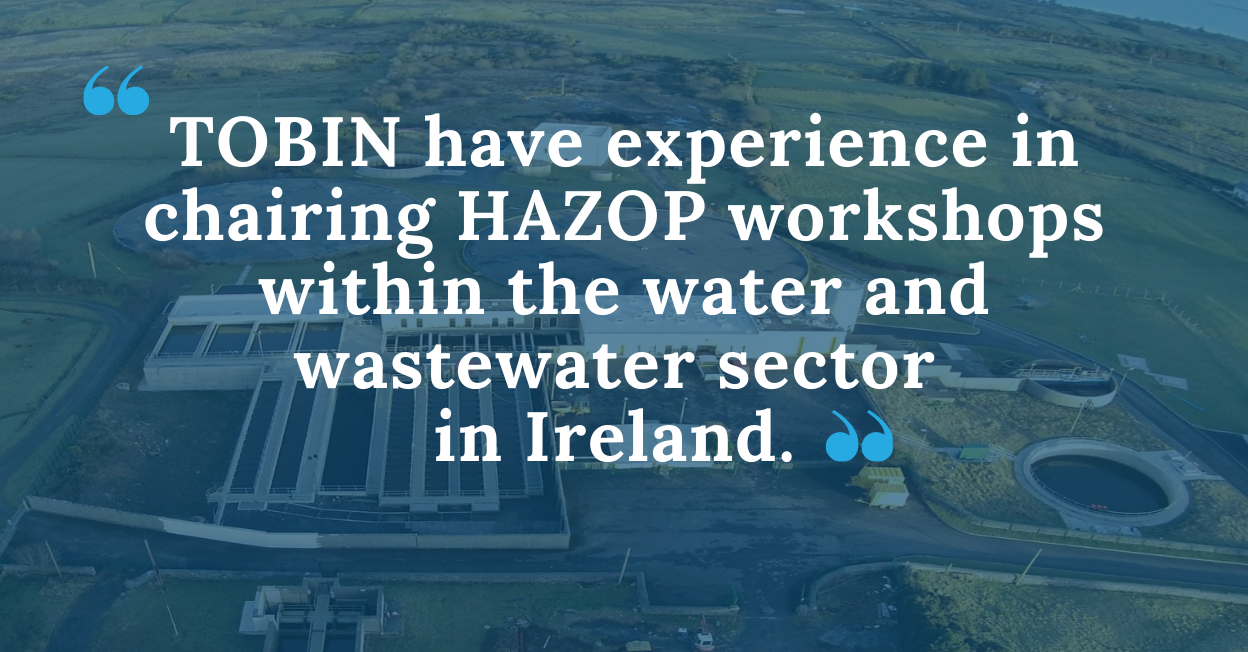
Many of the projects in which TOBIN have a key role, involve complex systems and processes. For instance, a wastewater treatment plant may contain mechanical and electrical equipment involved in the treatment process. In order to control and manage the treatment processes, the project can typically include instrumentation, control and automation equipment. This may also involve the use of software to manage the processes and to adhere to a control philosophy. The overall installation can behave similar to a living organism, as one might expect for a treatment process that involves so many complex interactions. A change to one part of the organism can affect the remainder in various ways. In order to anticipate and mitigate any negative effects during the operation of the process, a HAZOP approach is employed.
A hazard and operability study (HAZOP) is generally defined as a structured and systematic study of a complex process in order to identify risks to both personnel and equipment. It is in use today worldwide, across a range of industries including oil and gas, food and beverage, power generation, etc. It is also in use within the civil engineering industry, including water and wastewater treatment plants. For projects such as Louth WSS, Birr and Tullamore WTP and Lee Road WTP, TOBIN staff have prepared HAZOP study reports and have also participated in HAZOP workshops with all parties involved in the works.
We have experience in chairing HAZOP workshops within the water and wastewater sector in Ireland, most recently for a project in one of the largest wastewater plants in the country, Ringsend WwTP. TOBIN staff have also chaired follow-on meetings in the area of Control System HAZOP, or CHAZOP. For all Irish Water projects, the requirements of the HAZOP procedure IW-HSQE-PR-001 are followed.
TOBIN will continue to play a significant role in the safe delivery of projects, and by engaging in the HAZOP process we can help to promote safe working environments across the water and wastewater sector in Ireland.



